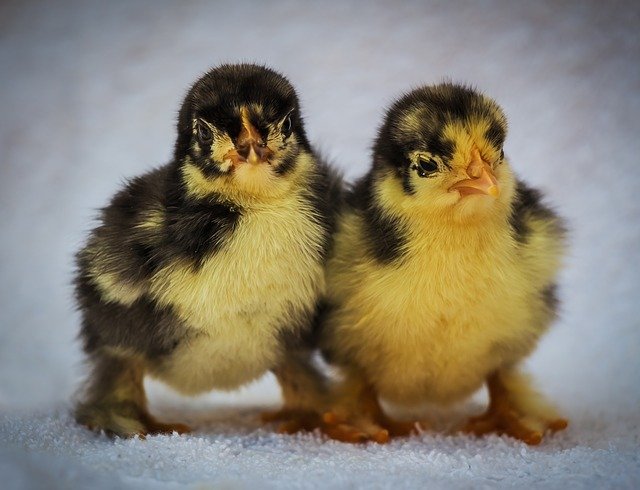The Torah this week tries to show a degree of compassion to the bovine species, even within the realm of animal sacrifices. Thus, a newly born calf must not be sacrificed before it is at least eight days young if only to allow its mom a sense of motherhood, if not bonding, with its child. In comparison to the contemporary factory farm where the (dairy) calf is removed from its mother moments after its birth with evident days-lasting anguish to both, the Torah seems to recognize here the need of the mother bovine to nurture its child.
[Picture: a newly born calf must not be sacrificed before it is at least eight days young if only to allow its mom a sense of motherhood, if not bonding, with its child. ... The image is a screenshot]
[For articles on the “Sabbath of Amor" in Hebrew, click here]
Updated on May 2, 2023
Rabbi Dr. Yossi Feintuch was born in Afula and holds a Ph.D. in American history from Emory University in Atlanta. He taught American history at Ben-Gurion University.
Author of the book US Policy on Jerusalem (JCCO).
He now serves as rabbi at the Jewish Center in central Oregon. (JCCO).
* * *
The Torah this week tries to show a degree of compassion to the bovine species, even within the realm of animal sacrifices. Thus, a newly born calf must not be sacrificed before it is at least eight days young, if only to allow its mom a sense of motherhood, if not bonding, with its child. In comparison to the contemporary factory farm where the (dairy) calf is removed from its mother moments after its birth with evident days-lasting anguish to both, the Torah seems to recognize here the need of the mother bovine to nurture its child.
At the same time the Torah prohibits the slaughtering of a parent and child in the same day for the purpose of a religious sacrifice.
[Picture: a newly born calf must not be sacrificed before it is at least eight days young if only to allow its mom a sense of motherhood, if not bonding, with its child. ... The image is a screenshot]
Common to these two restrictions on what man can do to livestock animals is the idea of showing compassion; a worthy value issued by Him whose “compassion is over all His creatures” (Psalm 145:9). According to the Midrash in-as-much-as God has compassion for humans, so it is for such animals; something that is reflected in God’s admonition of His prophet Jonah for not having mercy for the humans and cattle in Nineveh whose demise Jonah wished to see.
God has extended His compassion to birds as well when prohibiting the capturing of or harming a dam sitting on its nestlings; to the extent that a human would seek to usurp her nestlings he would be required to shoo off the dam to a far-off distance where she would not be able to see him ransacking her offspring, either eggs or chicks (that have a nil value or practical worth).
Such limitations on a livestock farmer as in this weekly Torah portion point out that there is something brutish in eating the young of a bovine, or fowl, before its mother experienced maternal nurturing; to allow for that to happen would be sheer cruelty. Why, cruelty to animals is likely to lead to cruelty towards other humans.
Rabbi Brachiah (in the name of Rabbi Levi) associates these three prohibitions against sacrificing a bovine younger than seven days, or slaughtering both a bovine child and its parent even on the same day, or capturing a mother fowl and her nestlings with Proverb’s assertion that ‘’a righteous person does know the soul of his animal’’ (e.g., its wishes and needs, including its work conditions) and honors them.
And whilst the Torah requires the execution by stoning of an oxen who had gored a human to death it similarly decrees the same verdict for a human who murdered his fellowman. In both instances of the death penalty –decreed against an ox or a human, as Rabbinic law has it – it is to be reached by a majority of twenty-three court judges who have heard two competent witnesses, while the defendant, either the human or the animal, must be present for the verdict… The principle established here is that the ox was considered an individual fit to be adjudicated by a human court.
[Picture: whilst the Torah requires the execution by stoning of oxen who had gored a human to death it similarly decrees the same verdict for a human who murdered his fellowman... Screenshot from: "Brian Superstar". We believe we are making fair use of the image]
Isaiah seems to go even farther by telling us that ‘’He who slaughters an ox’’, (presumably for secular purposes, or for a mere sacrifice devoid of any sense of remorse), is as if he “slays a man” (66:3).
How are we to render this apparent symmetry between these two slayings? It seems that Isaiah warns his listeners that the slaughtering of an ox — besides being a meaningless act if offered with no contrition — might also lead to a homicide. Violating those two restrictions set by this weekly Torah portion on bovine sacrifices might lead to such a moral collapse.
[For articles on the “Sabbath of Amor" in Hebrew, click here]
מצאת טעות בכתבה? הבחנת בהפרה של זכויות יוצרים? נתקלת בדבר מה שאיננו ראוי? אנא, דווח לנו!
![[Picture: a newly born calf must not be sacrificed before it is at least eight days young, if only to allow its mom a sense of motherhood, if not bonding, with its child. ... The image is a screenshot]](https://www.xn--7dbl2a.com/wp-content/uploads/2022/05/לידה-של-פרה.png)

![[Picture: a newly born calf must not be sacrificed before it is at least eight days young if only to allow its mom a sense of motherhood, if not bonding, with its child. ... The image is a screenshot]](https://www.xn--7dbl2a.com/wp-content/uploads/2022/05/לידה-של-פרה-2.png)

![[Picture: whilst the Torah requires the execution by stoning of oxen who had gored a human to death it similarly decrees the same verdict for a human who murdered his fellowman... Screenshot from: "Brian Superstar". We believe we are making fair use of the image]](https://www.xn--7dbl2a.com/wp-content/uploads/2022/05/סקילה.webp)


